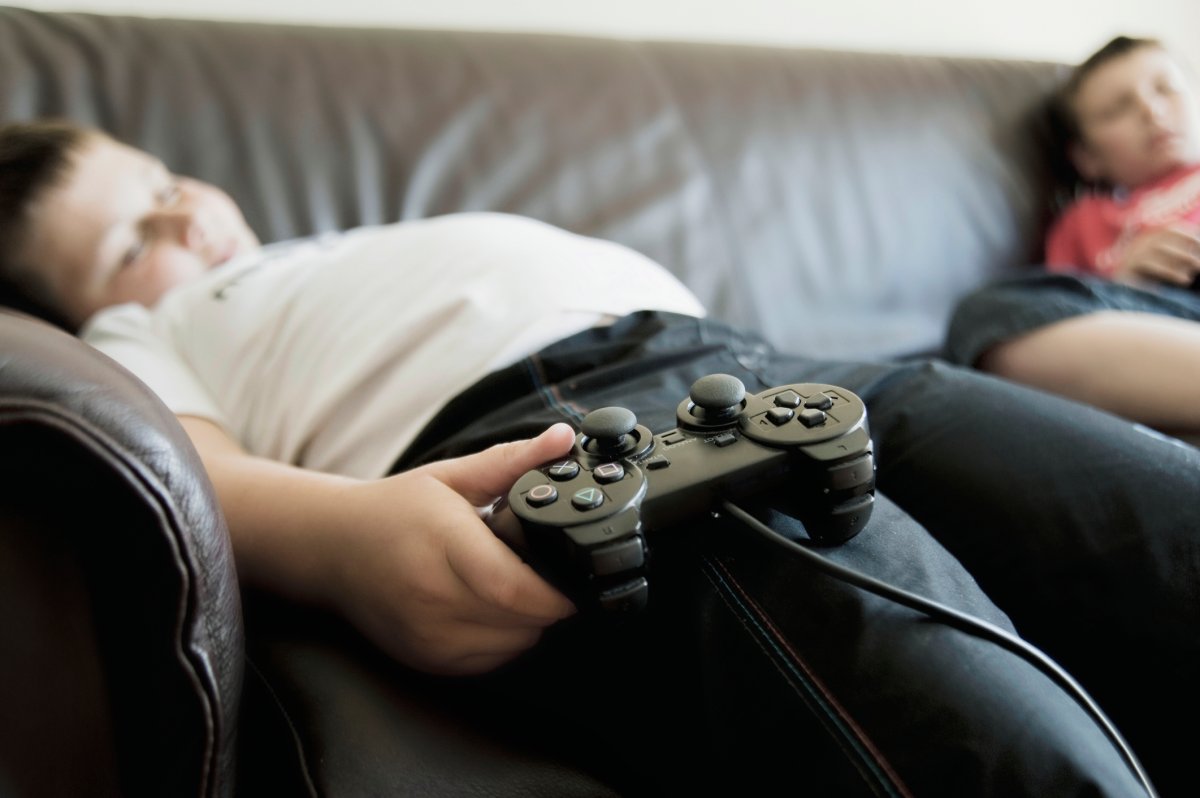For four hours on Sunday, a busy Toronto intersection is going green.

The pavement will be covered in a blanket of sod and children will be encouraged to kick off their shoes and play freely outside, no screens in sight.
It’s called the Green Street Challenge and the idea, says Andy Paluch, is “to do something strange enough to catch everyone’s attention and create space for a community to have a conversation about the importance of spending time outside.”
Paluch is executive director of Come Alive Outside, a non-profit that aims to get people off their couches and out into the open air. It’s a goal shared by many.
WATCH: Should kids be bribed to play better?

“Our children’s lifestyles are deteriorating,” says Dr. Mark Tremblay, director of healthy active living and obesity research at the Children’s Hospital of Eastern Ontario.
“Our kids are sleeping less than they used to, they’re sitting more than they used to, they’re spending more time in front of screens.”
The problem is, in the years since Tremblay’s been helping produce more than a dozen reports on the issue with non-profit ParticipACTION, nothing’s really changed. ParticipACTION sounds the alarm to much fanfare but when it comes to moving the needle on a daily basis?
“Canadian kids aren’t moving anymore,” he says. “They haven’t been since 2005 when we started the report card.”
Enter one-day events like the Green Street Challenge which offer up free games, toys and crafts outdoors in the hopes of sparking a more permanent love for the outdoors.
“The value of these days is creating awareness, creating some interest, and then hopefully people are leaving with the intention to spend more time outside,” Paluch says.
That doesn’t always work out, Tremblay says.
- Buzz kill? Gen Z less interested in coffee than older Canadians, survey shows
- ‘She gets to be 10’: Ontario child’s heart donated to girl the same age
- Bird flu risk to humans an ‘enormous concern,’ WHO says. Here’s what to know
- Canada updating sperm donor screening criteria for men who have sex with men
Think about the hierarchy of effects, he says, with awareness at the top and the changing of habitual behaviours lower down.
“What these one-off events tend to do is have an effect high up in the cascade,” Tremblay says.
“They can create awareness, they might even create some understanding, but the amount of ripple that goes down to actually changing habitual behaviours is negligible.”
So how do you encourage those less inclined to make big changes?
It’s partly about building joy in children about the outdoors but also about addressing parental fears about their kids’ safety while playing unsupervised outside, says Lenore Skenazy, president of Let Grow and founder of Free Range Kids.
WATCH: Drop the devices and get outside for a pop-up playground adventure

Riffing off take your kid to work day, Skenazy organized a neighbourhood-wide take our kids to the park day.
The idea was to help kids realize that it’s fun to play outside with their neighbours. At the same time, she says, there was safety in numbers so parents could relax.
“We needed something to break the ice,” Skenazy says.
“That being said, you want to have a chance to build on that once everybody has a great time. You don’t want them to go, ‘Wow, I can’t wait until next year.’”
That can be the concern around events that lend themselves to social media posts, Tremblay says.
“We don’t want to condition society, which I think we’ve already done now, that being physically active is a sort of special event that needs to come with a branded T-shirt … as opposed to being something that is absolutely fundamentally embedded in our everyday being,” he says.
Paluch, who agrees it can be tough to tell whether an event sparks behavioural changes, says the Green Street Challenge has partnered with the city of Toronto’s Parks, Forestry and Recreation department to help build on the momentum achieved by turning a busy intersection into an honorary park.
“The community institutions that are there, that are doing programming to follow up is extremely important,” he says. “The big day that captures everybody’s attention is plugging people in with the things that are ongoing and encouraging them to continue to go outside and be active.”
We need that, Tremblay says, given we’ve gone from a generation that felt punished when their parents grounded them to one that feels punished when they’re denied screen time.
“This is one massive natural experiment that is going on with our younger generation, the consequences of which we just shrug our shoulders and say how bad will it be?”




Comments